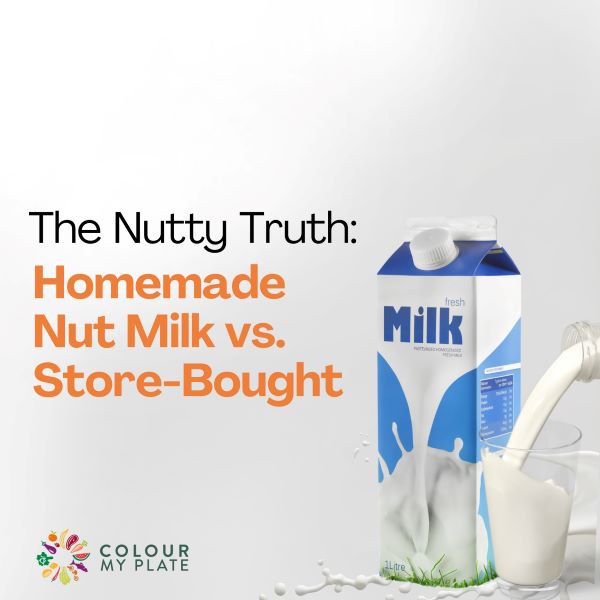
![]() 14 Jun 2024
14 Jun 2024
In recent years, the popularity of plant-based milk alternatives has skyrocketed. Whether you are lactose intolerant, vegan, or simply looking to explore new dietary options, there’s no shortage of choices lining the shelves of grocery stores. However, before you reach for that carton of Almond or Cashew nut milk, it’s essential to understand what you’re really consuming.
Most store-bought plant-based milks come with a long list of ingredients, many of which are preservatives and additives. These additives are used to extend the shelf life of the product, ensuring it stays fresh for longer periods. While this might seem convenient, it often comes at a cost to our health.
One common additive found in many plant-based milks is carrageenan. This seaweed-derived thickener and stabilizer is used to improve the texture of the milk. However, research suggests that carrageenan may have adverse effects on gut health, leading to inflammation and digestive issues in some individuals. This is just one example of the many additives lurking in store-bought milks that could potentially harm our bodies in the long run.
Another concern with store-bought plant-based milks is the presence of added sugars. Many brands enhance the flavor of their products by adding sweeteners like sugar or syrup. While this may make the milk more palatable, it also increases its overall sugar content, potentially contributing to health issues such as obesity, diabetes, and tooth decay.
One of the significant differences between homemade and store-bought plant-based milks lies in the ratio of nuts to liquid. When you make nut milk at home, you have control over the ingredients and can adjust the nut-to-water ratio to your liking. This results in a richer, creamier milk with a higher concentration of nutrients from the nuts. In contrast, store-bought milks often contain a lower proportion of nuts to liquid, leading to a thinner, less nutrient-dense product.
While store-bought plant-based milks offer convenience, the benefits of consuming homemade nut milks far outweigh the convenience factor. By making your own nut milk at home, you can control the quality and quantity of ingredients, ensuring a fresher, healthier product. Plus, homemade nut milk is free from preservatives, additives, and added sugars, making it a cleaner option for your body.
Additionally, homemade nut milk tends to be richer in nutrients, including essential vitamins, minerals, and antioxidants. By choosing homemade over store-bought, you’re not only prioritizing your health but also indulging in a delicious, wholesome beverage that’s bursting with flavor and goodness.
In conclusion, while store-bought plant-based milks may offer convenience, they often come with a host of hidden additives, sugars, and a lower nutrient ratio compared to homemade alternatives. By making your own nut milk or buying home-made nut milk, you can enjoy all the health benefits without compromising on taste or quality. So why settle for store-bought when you can have the real deal?

We noticed you haven't completed your delivery details.

Your message is sent